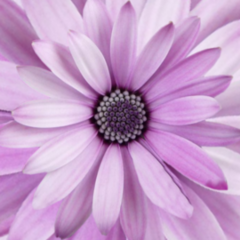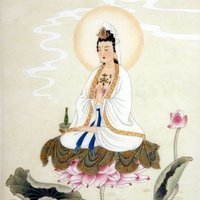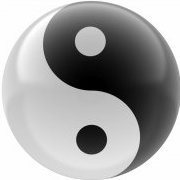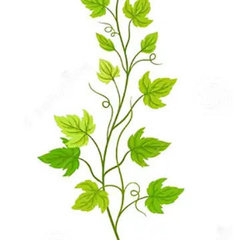-
Content count
11,471 -
Joined
-
Last visited
-
Days Won
262
About doc benway
-
Rank
Dao Bum
-
I hear and feel you @old3bob It is a difficult time. I have been experiencing intense reactivity - anger, fear, disappointment, frustration, despair, and the list goes on. The emotions are more powerful and destabilizing than they have been in me in a very long time. They have shown me both strengths and vulnerabilities in myself and in my practice. I wonder if there would be a place here for a thread where we can share how the current events are affecting us emotionally, psychologically, and physically without getting into discussing the politics per se? Not sure it would work but perhaps it could in the Healing Bums area… I won’t start a thread yet but thought I’d float the idea. I deeply respect the willingness of the mod team to try and keep the board civil and balanced and I don’t want to create more work but it would be nice to be able to offer each other some support in dark times. I have an account at Substack since being introduced to the community by @liminal_luke. When I first joined it was a place where intellectuals would blog in fields like literature, philosophy, history, sciences, and so forth, and it was not very political. With the exodus of people from social media sites like X, Facebook, and the like, it has become a very active place for discussion of politics. It is a growing community fostering advocacy and resistance to current political and social trends, not only in the US but around the world. I mention this because you may find it worth checking out if are not familiar with it @old3bob. On the one hand, it can be a bit of a dark place to be and easy to get lost in the negativity, but on the other hand there is a lot of positivity, advocacy, and community building going on there and it is easy to find writings on many topics like art, literature, history, sciences, spirituality, and so forth. The contributions are far more substantive, with less argument and derision, than what is posted on other social media sites. I appreciate @liminal_luke’s message reminding and encouraging us to find and share beauty, and I’ll add kindness, in hard times. It is never more important and never more difficult than when times are tough. As things get darker and more threatening, I think it is important to try and maintain an open heart for each other, especially for those who may be trying to deconstruct and find a way back to the light. Now is the time for taking care of the body, spirit, and mind, as we will need our health, strength, and resilience to face what is here and what is coming. I’ve recently lost another friend and fellow practitioner, Sarah, to cancer and I’m just coming from a group practice in her memory. The reality of impermanence is vivid and alive in me at the moment. It is a reminder that what I have even, or perhaps especially, now is worth honoring and fighting for. Anyway, enough rambling. Warm regards to you all.
-

Original text that explains the two truth doctrine
doc benway replied to S:C's topic in Buddhist Textual Studies
I recently watched Moonage Daydream. Good flick. -

Original text that explains the two truth doctrine
doc benway replied to S:C's topic in Buddhist Textual Studies
Another good reference for the Two Truths is Mipham’s Beacon of Certainty. It’s not an easy read but Journey to Certainty by Anyen Rinpoche is a clear summary and commentary on the Beacon, a great read. -
You need to define it first, then we can investigate its existence. Indeed
-
One of my most treasured members of our little community. She was indeed wise, gentle, and generous. She will be deeply missed and remembered. Thank you for sharing this update @Geof Nanto
-
One of my favorite spiritual teachers, Anthony Demello, speaks to this with experience and wisdom. He was a psychologist and Jesuit with a Hindu and Buddhist background, born in India. He spoke of his conflict in dealing with people who came to him for help. The psychologist in him wanted to help ease the pain whereas the spiritual guide knew they must go through the pain to experience meaningful growth and liberation.
-
Can you share with us, or by PM, how to find your poetry? Glad to have you here.
-
And yet wouldn’t it be beautiful if we could somehow facilitate an explosion of heart? Heart and mind must be balanced in my opinion. The lack of balance is largely responsible for our misuse of the powers of mind alone. Spirituality for me is largely about restoring balance through opening the heart and maturing it as a refuge and a tool. When looking at a spiritual source, be it new or old, my questions are, does it make people kinder and more open? Does it cultivate empathy, honesty, and transparency? Does it strengthen relationships or isolation? Not always easy to get answers to these questions and often takes time and engagement with the view and practice. This is the advantage of the older, established traditions, you can see the effects over time and the kinks have been worked out. Newer ideas and methods are more of a risk, and our time is short as human beings on Earth, but at the end of the day, they could be just what is needed for the right person.
-
The Place Where We Are Right Yehuda Amichai From the place where we are right flowers will never grow in the spring. The place where we are right is hard and trampled like a yard. But doubts and loves dig up the world like a mole, a plow. And a whisper will be heard in the place where the ruined house once stood.
-
my quarters are gone shepherded by destruction walking without legs
-
@Samoobramba I wonder if you’ve come across the book below? It is one of my favorite books on taijiquan. I started reading it early in my taijiquan practice and didn’t understand much. As my skill and experience grew, so did my understanding and appreciation for the book. .
-
Just finished Dr. No by Percival Everett. It’s a rare book that repeatedly has me laughing out loud. A welcome relief from the heavier reading I’ve been doing lately.
-
No question there is a big change here. Terms I’ve searched on many occasions are yielding far fewer hits than in the past or no results at all. Reviewing the activity log in my profile only lists activity going back for 2 months - to 2/14. Thanks for looking into this team!
-
The one telling the parable.










.thumb.jpg.7621d8e4dd2d0d878c4efc817a267564.jpg)













